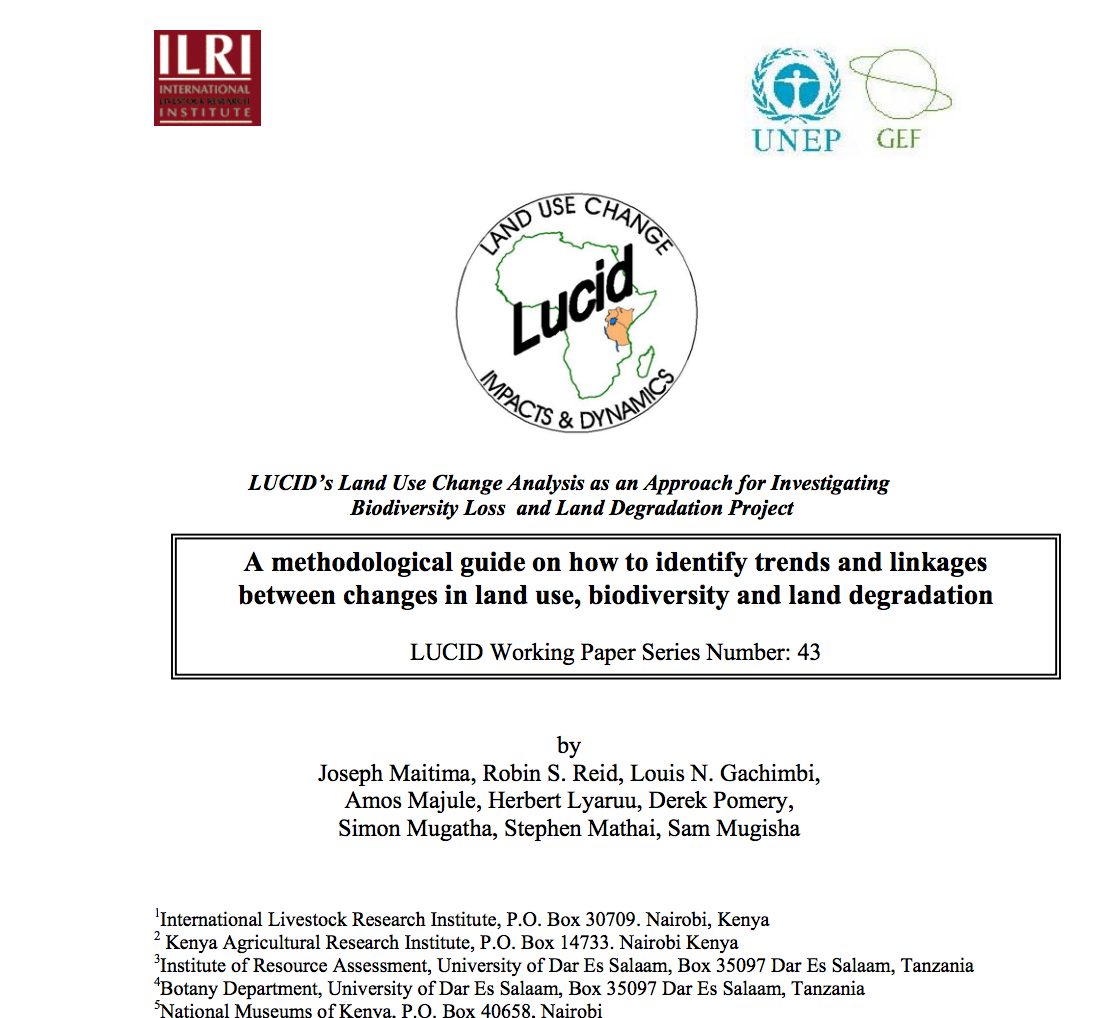Location
The main objective of the network is to stimulate research on land use and global change in east Africa by bringing together experiences from different long term research sites to bear on common regional research themes associated with land degradation and conservation of biodiversity in the context of sustainable livelihoods.
Members:
Resources
Displaying 1 - 2 of 2The spatial patterns and root causes of land use change in East Africa
The overriding finding of the LUCID land use changes analyses is how rapidly farming and agro-pastoral systems have changed:small-scale farmers and pastoralists have changed their entire system several times since the 1950’snew land uses have been developed, and existing land uses have been transformedThese changes have allowed many more people to live on the land as farmers and agro-pastoralists, and the systems have shown flexibility and adaptability in face of changing international and national economic and political structures.
A methodological guide on how to identify trends and linkages between changes in land use, biodiversity and land degradation
Land quality in the man-modified agricultural landscapes of eastern Africa has been shown to degrade over time, resulting in higher demands for farm inputs in order to sustain productivity. Loss of biodiversity has also been observed in all these areas of land use change. It has therefore become important to know how land use change contributes to land degradation and how land use change leads to biodiversity loss. This paper from the collaborative LUCID project describes a framework for the analysis between land use change, biodiversity loss and land degradation for the first time.



